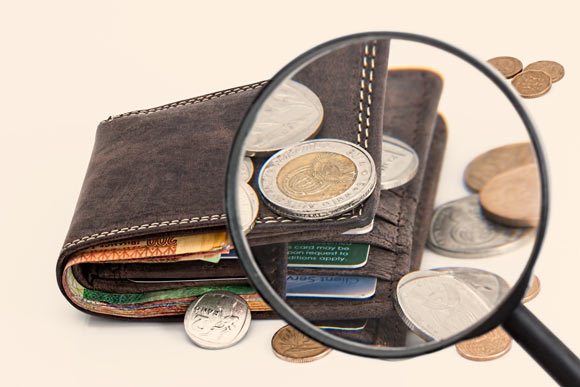An international team of researchers from the United States and Switzerland turned 17,303 ‘lost’ wallets containing varying amounts of money into public and private institutions in 355 cities across 40 countries. The team’s goal was to see just how honest the people who handled them would be when it came to returning the missing property to their owners. The results, described in the journal Science, were not quite what the scientists expected.

In virtually all countries citizens were more likely to return wallets that contained more money. Image credit: Steve Buissinne.
“Honesty is important for economic development and more generally for how society functions in almost all relationships. Yet, it often is in conflict with individual self-interest,” said co-lead author Dr. Alain Cohn, a scientist at the University of Michigan, Ann Arbor.
The researchers conducted a series of large-scale field experiments across the globe to examine how financial incentives influence rates of civic honesty.
They turned in ‘lost’ wallets and experimentally varied the amount of money left in the wallets.
The wallets either contained no money, a small amount ($13.45) or a larger sum ($94.15). Each wallet had a transparent face revealing a grocery list along with three business cards with a fictitious person’s name, title and an email address printed on them.
The authors visited 355 cities in 40 countries and turned in a total of 17,303 wallets. They typically targeted the five to eight largest cities in a country, with roughly 400 observations per country.
Wallets were returned to one of five societal institutions: (i) banks, (ii) theaters, museums, or other cultural establishments, (iii) post offices, (iv) hotels, and (v) police stations, courts of law, or other public offices.
After walking into the building, one of research assistants approached an employee at the counter and said, “Hi, I found this [pointing to the wallet] on the street around the corner.” The wallet was then placed on the counter and pushed over to the employee. “Somebody must have lost it. I’m in a hurry and have to go. Can you please take care of it?”
The research assistant then left the building without leaving contact details or asking for a receipt. The key outcome measure was whether recipients contacted the owner to return the wallet.

Share of wallets reported in treatments ‘no money’ ($0) and ‘money’ ($13.45) by country. The amount of money in the wallet is adjusted according to each country’s purchasing power. Image credit: Cohn et al, doi: 10.1126/science.aau8712.
The team found that in nearly all of the countries, the wallets with greater amounts of money were more likely to be returned.
In 38 of 40 countries, the recipients overwhelmingly were more likely to report lost wallets with money than without. Overall across the globe, 51% of those who were handed a wallet with the smaller amount of money reported it, compared with 40% of those that received no money. When the wallet contained a large sum of money, the rate of return increased to 72%.
“The psychological forces — an aversion to not viewing oneself as a thief — can be stronger than the financial ones,” said co-lead author Dr. Michel André Maréchal, from the University of Zurich.
Not all wallets in the field experiment were returned, however. Among the other surprises were some of the places where people were not so honest.
Wallets dropped off at the Vatican and at two anti-corruption bureaus were among those that never made their way back to the ‘rightful owners.’
After getting the field results, the team surveyed more than 2,500 people in the United Kingdom, the United States and Poland to better understand why honesty matters to us more than the money.
The respondents were presented with a scenario that matched the field experiment and asked questions about how they would respond if presented with a lost wallet.
Similar to the field study, those in this survey said failing to return a wallet felt like stealing when more money was involved.
The scientists also conducted a survey with 279 economists and experts in the field who predicted participants likely would keep the money.
Another survey of nearly 300 people in the United States also showed that when predicting the behavior of others, respondents believed civic honesty would waiver when the amount of money was higher.
While the experts had a bit more faith in the honesty of individuals, both groups believed the more money in the wallet, the more tempting it would be to keep it.
_____
Alain Cohn et al. Civic honesty around the globe. Science, published online June 20, 2019; doi: 10.1126/science.aau8712







